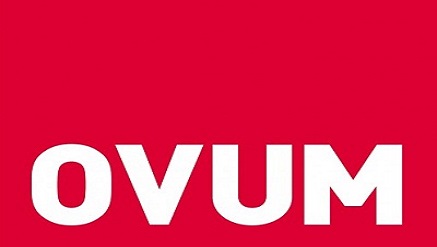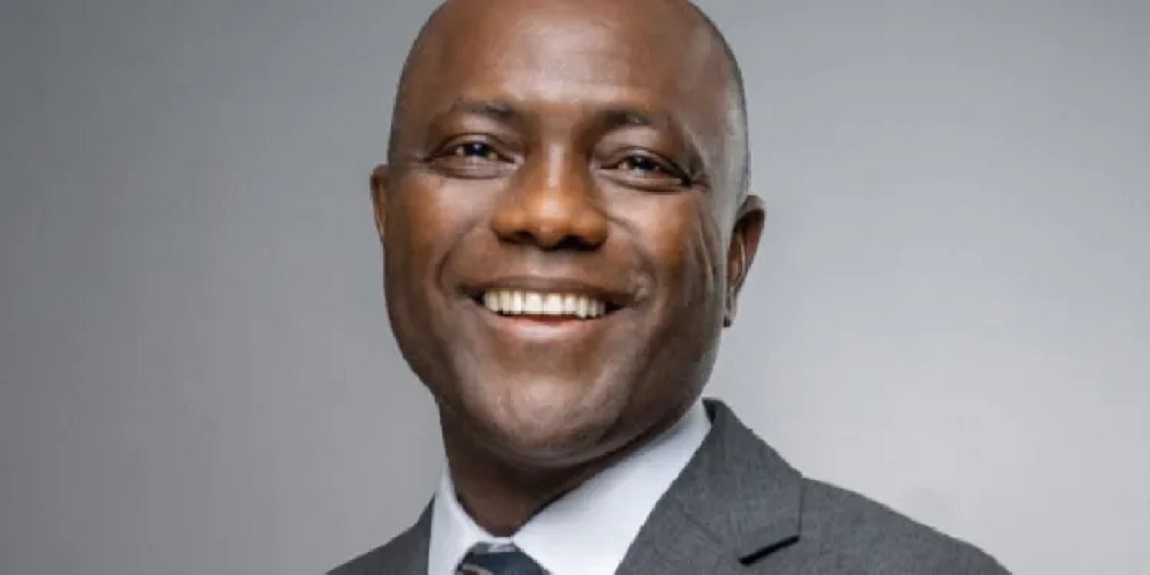Broadcasting
Online to Mainline: OTT Streaming to Hit 100m Subscribers in 2015- Ovum

Direct-to-consumer initiatives such as HBO Now and Sling TV herald a new era in online streaming as premium, stand-alone services based on content once exclusive to traditional pay TV hit the market.
While free, ad-supported, and bundled multiscreen streaming has driven huge usage volumes, Ovum believes that a new era of streaming entertainment is upon us, as alerted by Ovum.
Tony Gunnarsson, a senior analyst in Ovum’s TV Practice, said, “Until now, watching the latest Hollywood movies and TV shows has largely been the preserve of downloads, discs, and pay TV. What we’re seeing in maturing markets such as the US is that the audience is shifting towards premium linear streaming, which is augmenting well-established free on-demand services such as YouTube. Home entertainment is evolving as subscription-based VOD services reach the mass market: It is now commonplace to watch original productions such as Bosch from Amazon’s Prime Instant Video streamed to the main TV. The emergence of stand-alone – often linear – streaming propositions such as PlayStation Vue and Yaveo represent the first that truly substitute for traditional pay TV.”
The key trend is the proliferation of stand-alone OTT services launched by traditional TV players, such as HBO Now, CBS All Access, and DISH’s Sling TV.
Hence Ovum expects the reassertion of the traditional TV value chain, pushing back against technology-led Over-the-top content (OTT) specialists such as Amazon, Netflix, and Hulu.
“We believe that the emergence of such services will help drive the global total of online streaming subscribers past 100 million in 2015, with a further 77 million more expected by 2019,” he said.
This will have a number of impacts on the visual entertainment ecosystem. Naturally an already unforgiving competitive environment will intensify.
Services which fail to understand the increasingly complex array of choices available to the audience will struggle against those that address the need for connectivity, perhaps in hardware as well as content.
Ovum, also said there is likely to be much downward pricing pressure as the multiplay offers will ruthlessly discount bundled services which lie outside the core business of the seller.
Ovum does, however, expect some upside for companies which produce the content which the audience craves: More distributors and perhaps even the creaking open of another release window will offer more negotiating leverage for the creators of the most dearly loved TV shows and movies.
Ed Barton, Ovum’s Head of TV Research and Analysis, commented thus, “We are on the cusp of the next major evolutionary growth phase in visual entertainment. As the industry hunts for opportunities to address slowing traditional TV subscription revenues, the major trends in technology, audience consumption, and service evolution offer glimpses of a brighter future. We see a shift in how TV is increasingly addressing individuals rather than households, and how the merging of online and broadcast advertising technologies and the ongoing hunger for true ‘Martini TV’ – any time, any place, anywhere – from the audience offers significant incremental revenue opportunities. The proliferation of linear SVOD from traditional TV is just one part of this shift which underpins our firmly held view: TV’s best days lie ahead.”
Ovum has finalized a major revision of its global OTT Video analysis, covering all the world regions and 19 selected ‘Ovum tier 1’ territories. The new OTT Video analysis includes all mainstream contemporary OTT Video and TV – digital retail, rental, and subscription – across a range of metrics including revenues, transactions, and average price, as well as genre and resolution splits, and what may very well be the worlds’ first OTT Video platform usage analysis conducted across active devices.
Ovum is a leading global technology research and advisory firm. Through its 180 analysts worldwide it offers expert analysis and strategic insight across the IT, telecoms, and media industries.
Founded in 1985, Ovum has one of the most experienced analyst teams in the industry and is a respected source of guidance for technology business leaders, CIOs, vendors, service providers, and regulators looking for comprehensive, accurate, and insightful market data, research, and consulting.
With 23 offices across six continents, Ovum offers a truly global perspective on technology and media markets and provides thousands of clients with insight including workflow tools, forecasts, surveys, market assessments, technology audits, and opinion. In 2012, Ovum was jointly named Global Analyst Firm of the Year by the IIAR.
In addition, Ovum operates a large portfolio of technology conferences annually in Europe under the OvumLive events brand, presenting a more interactive opportunity to learn from its analysts. Its flagship event – Ovum Industry Congress – attracts over 300 end-user attendees every year.
Ovum is a division of Informa plc, one of the leading business and academic publishing and event organizers globally, headquartered in London. Informa is quoted on the London Stock Exchange.
Broadcasting
Luft Pay TV Launches in Lagos, Promises to Revolutionize Entertainment

Luft Pay TV has officially launched in Nigeria’s Pay TV landscape, bringing a fresh perspective to home entertainment.

Officials of Luft Pay TV at the launch
The brand’s dynamic debut in Lagos recenlty, drew media executives, content creators, industry stakeholders, and entertainment enthusiasts.
Yemi Adebowale, head of Corporate Communications and Media at Luft Pay TV, emphasised the brand’s mission to simplify entertainment and provide real value. “Luft Pay TV is more than just another player in the market.
He said, “We’re here to simplify entertainment, eliminate confusion around billing, and provide real value with high-definition content that reflects both global quality and local identity.
Luft Pay TV’s standout feature is its all-in-one subscription model, offering over 35 premium channels for ₦7,500 per month.
The channel lineup includes Sports, Live sports action, Movies: Nollywood and Hollywood films as well as Kids’ Programming, Documentaries, Music and Lifestyle content.
“Decoder and STB Kit Prices: Decoder: ₦25,000 – Complete STB kit with accessories: ₦35,000. As a proudly Nigerian brand, Luft Pay TV is committed to promoting local storytelling through partnerships with indigenous content creators.
“This initiative aims to project African stories globally and provide an inclusive, affordable, and proudly African entertainment experience to Nigerians everywhere.”
Luft Pay TV has commenced nationwide installations across the six geopolitical zones, supported by a growing distribution network and robust customer service infrastructure.
This ensures a seamless user experience for subscribers
With its innovative approach and commitment to Nigerian talent, Luft Pay TV is poised to revolutionise the television experience in Nigeria.
Broadcasting
When Legacy Meets Preparedness – Olusegun Alebiosu as CEO, Firstbank Group

By Aniekan Ezekiel
What happens when legacy meets preparedness? What results from such a combination? Let us not be in a hurry to put forward any answers yet. Instead, let us consider first the opposite situation: When legacy meets unpreparedness.

The world abounds in examples of this distressing situation. A dynasty that has built wealth from generation to generation, with its illustrious heirs providing generational leadership, finds itself in a strange phase where an ill-prepared heir takes over the reins and in that same generation, not the next, wipes out the entire family fortune built over several generations.
We see the same thing with nations. History is replete with examples of great nations built by great leaders, which slid into oblivion when they were hit by arguably the greatest misfortune that ever befalls humanity – bad leadership. It is the reason American author and leadership expert John Maxwell asserts, “Everything rises and falls with leadership.”
As with nations, so with organisations. We see organisations that have thrived for decades and over several generations, get a new leader who is not prepared for such leadership, and the leader pushes the organisation to the brink of collapse.
Contrast this picture with the situation at Nigeria’s most enduring corporate organisation with the most amazing legacies of firsts, First Bank of Nigeria Limited, which witnessed a leadership transition about a year ago. Faced with a number of quality options in and outside the then management team, the decision-makers at the bank and its parent company FBNHoldings, now First HoldCo Plc, had to be clear-minded about who could become the new Chief Executive Officer of FirstBank Group.
Equally important as the need for continuity was the non-negotiable requirement for capacity to manage the ship of the 130-years-plus institution to sustain its enviable legacies and consolidate the gains made in recent years. The search was for someone with a steady head and hands (talk of risk control and mitigation), in addition to an excellent track record of sterling performance and achievements.
Fortunately, fate was on their side. They did not have to look outside. Right there before them was someone who understood all kinds of risks and how to control and mitigate them. He had been with FirstBank since 2016 when he joined as Group Executive / Chief Risk Officer. Then in January 2022 he was elevated to Executive Director / Chief Risk Officer and Executive Compliance Officer.
This man has given nearly three decades of his working life to the banking and financial services industry. He has under his belt a rich tapestry of cross-functional experience in credit risk management, financial planning and control, credit and marketing, and trade. His cross-functional exposure also includes corporate and commercial banking, agriculture financing, oil and gas, transportation, including aviation and shipping, and project financing
Meet Olusegun Alebiosu, the man history had prepared and the one decision-makers chose among the quality options. He was appointed substantive Chief Executive Officer of FirstBank Group in June 2024, having acted in that capacity since April 2024 when the former CEO left.
Determined to build on the bank’s legacies while navigating the ever-changing landscape of the financial services industry, Alebiosu has shown unwavering commitment to lead the bank through a transformative period that places emphasis on strategic consolidation, technological advancement and market expansion.
Alebiosu’s approach to sustaining the legacies of firsts at FirstBank, which has been at the vanguard of accelerating Nigeria’s digital payments as the first bank to issue over 13 million cards to customers, draws from his vast professional experience which began with Oceanic Bank Plc, now Ecobank Plc, in 1991. Between then and joining FirstBank in 2016, he had worked at Coronation Merchant Bank as Chief Risk Officer, at African Development Bank Group as Chief Credit Risk Officer and at United Bank for Africa as Group Head, Credit Policy and Deputy Chief Credit Risk Officer.
Under one year of his appointment as substantive CEO of FirstBank, Alebiosu’s strategic consolidation efforts have demonstrated that he is a worthy successor, not an ill-prepared or unprepared one, proving the decision-makers right. Understanding the critical role of its human capital in sustaining the bank’s legacies, Alebiosu has invested himself and the bank’s resources in promoting staff welfare.
A comprehensive review of the bank’s compensation structure was undertaken to position it within the 75th percentile of the industry, making the bank more retentive of, and attractive to, the best talents. The highest number of staff promotions across various grades in the last five years has happened under Alebiosu’s watch, with 1,654 employees being elevated in one single promotion cycle.
Under his leadership, over 2,186 new hires have been recruited across key functions and subsidiaries, with a large number of them deployed to the sales function to ensure that retail customers are adequately served. Staff are now more engaged based on the high employee engagement score of 86% achieved in the April 2025 WorkBuzz survey, indicating remarkable progress in the bank’s multi-pronged efforts to promote a positive and inclusive workplace culture.
This drive to reinforce a culture of inclusion and recognition has been accentuated by the launch of a group-wide culture transformation initiative with the goal of embedding the core values of integrity, excellence and innovation. It has also been strengthened by a renewed focus on inclusion, collaboration and high performance. Also contributing was the staging of a FirstBank Employee Appreciation Day 2025 featuring, among others, a personalised appreciation video message from the CEO to all employees across the group throughout Africa and beyond. The inclusion message is further boosted by the launch of the inaugural edition of the bank’s pioneering initiative, Mandarin Language School, to bolster the bank’s expansion in the Asian market.
Expansion is a critical plank in FirstBank’s new strategic planning horizon, under Alebiosu’s leadership. Taking off this 2025, the plan seeks to reinforce the bank’s market dominance across all operational regions and it includes deliberate expansion into new markets within and outside Africa.
Beyond geographical and horizontal expansion, Alebiosu’s plan has also targeted a skyward expansion. Or how else does one describe the groundbreaking ceremony in March 2025 for the bank’s new green-certified, 44-storey iconic head office building in Eko Atlantic City, Lagos State?
Alebiosu is also prioritising the acceleration of process automation in recognition of the importance of digital transformation. It is a massive push for technological advancement that includes adopting robotics technology and artificial intelligence at scale, to give the bank an unassailable competitive advantage among its peers in the industry.
The bank has deployed digital tools to enhance seamless account opening and optimised backend systems and customer service delivery. Two additional Digital Experience Centres (DXCs) have been launched – one at Lekki Admiralty Way, Lagos State and the other at its UNN branch, Nsukka, Enugu State. Also, the bank’s agent network has expanded to over 280,000, a 50,000 increase from the 230,000 agents it had in 2023.
As expected, shareholders, among other stakeholders, have been observing the strides the bank has been making under Alebiosu’s leadership, with a keen eye on the numbers. Fortunately, again, the bank’s results for the financial year ended December 2024 speak volumes, with after-tax profit of its parent company rising to the highest point it has reached in the last 12 years, according to the company’s latest financial statement.
In recognition of his achievements within such a short period and his exemplary leadership, Alebiosu was honoured at the World Business Outlook Awards as “Banking CEO of the Year – Nigeria 2025”. He has also been honoured with the “Special African Banking Leadership Award” by African Leadership Magazine. This was in 2024.
The story of Alebiosu’s leadership at FirstBank has clearly been one of preparedness meeting legacy. Working with the board and management team, he has consistently sustained the bank’s legacies and also consolidated its recent gains in ways that will ensure the gains keep compounding. FirstBank, more than ever before, is poised for greater intra- and intercontinental growth and impact in the years ahead.
Broadcasting
Canal+ Buyout Of South Africa’s MultiChoice one Step Closer

South Africa’s competition authority announced Wednesday it had approved the buyout of Africa’s largest pay TV enterprise MultiChoice by France’s Canal+, which wants to expand its footprint on the continent.

The merger, which has been in the works for nearly a year, needs the final go-ahead from the commission’s Competition Tribunal, it said in a statement.
Canal+ holds around 45 percent of MultiChoice’s shares and offered last year to acquire the remainder for 125 rand (6.16 euro) per share.
Canal+ is present in 25 African countries through 16 subsidiaries and has eight million subscribers, according to the French group.
MultiChoice operates in 50 countries across sub-Saharan Africa and has 19.3 million subscribers, it said.
It includes Africa’s premier sports broadcaster, SuperSport, and the DStv satellite television service.
“This is a major step forward in our ambition to create a global media and entertainment company with Africa at its heart,” Canal+ CEO Maxime Saada said in a statement.
The commission said its approval of the merger was subject to public-interest conditions worth about 26 billion rand over three years, including increasing the shareholding of people disadvantaged under South Africa’s white-minority apartheid regime.
It will also maintain the MultiChoice headquarters in South Africa.
A date for the Tribunal’s decision on the merger has not been announced but Canal+ said it was aiming for the deal to be completed by early October.

 E-Financial2 days ago
E-Financial2 days agoNGX Clears Fidelity Bank MD of Insider Trading Allegations

 News2 days ago
News2 days agoToll Collection on Lagos-Calabar Highway Begins December

 Telecom5 hours ago
Telecom5 hours agoNCC Orders Telcos to Compensate Subscribers for Outages More than 24 Hours

 E-Financial5 hours ago
E-Financial5 hours agoSERAP Drags CBN to Court over Alleged Failure to Disclose LG Allocations

 Telecom5 hours ago
Telecom5 hours agoTelecom Subscribers Decline By 43m in One Year

 General News5 hours ago
General News5 hours agoHEDA Sues FG, Oil Giants over Alleged Unlawful Oil Licence Transfer

 E-Business5 hours ago
E-Business5 hours agoNigeria Launches Cybercrime Team with Commonwealth, UK Support

 Telecom5 hours ago
Telecom5 hours agoIHS Nigeria, NSCDC Partner to Protect Telecoms Infrastructure





















